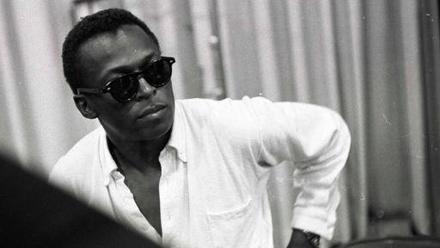Pain can nourish art. That old idea got renewed in the context of the new Billie Holiday documentary, and it comes up again with Stanley Nelson's 2-hour PBS "American Masters" history of Miles Davis.
"Birth of the Cool" is a worthy summary. We hear of Miles' changes, his marriages, his addictions and his struggles, told through new interviews with the key people, and also through the words of Davis himself, via Miles-style whispers creditably read by actor Carl Lumbly. Many commenters report the beauty that came through in Miles' phrasing and tone, but we are left to intuit the kind of soil that grew the beauty.
On the occasion of Miles Davis' 1991 demise, I wrote that his lyricism sounded as if the emotion had been burned out of it. I'll stick by that, and now, having read three biographies over the years, watched the current documentary and tried to sit through the Don Cheadle biopic "Miles Ahead" (couldn't), I'll add some thoughts.
Although Nelson mentions Miles' latter-day hip surgeries, he doesn't emphasize the sickle-cell anemia from which Miles suffered. As Jack Chambers explained in his 1983 book "Milestones," the congenital disease imposes recurrent pain and exhaustion from an early age.
Now, Davis was driven -- driven enough to quit St. Louis and enter Juilliard at 18, simultaneously trying to look after his young family and scour New York alleys to reconnect with bop godfather Charlie Parker, with whom he had already played in Billy Eckstine's band. Unite the highest ambitions with those challenges, and top the mound with a debilitating physical affliction, and you've got one stressed teenage trumpeter.
Davis withdrew into an inner fortress, but as a born communicator, he never forsook his art. Incredibly disciplined, he took up boxing to strengthen his small body and hone his concentration. So we hear a combination of all this: enormous talent, intelligence and focus, coming to our ears across a gulf of pain from a great self-imposed distance inside Miles' head. Yet there it is, intimacy -- resonating with us not only because of the artist's skill, but because we recognize the landscape of solitude and fear from which it comes.
* * *
Watch "American Masters: Miles Davis" here.

